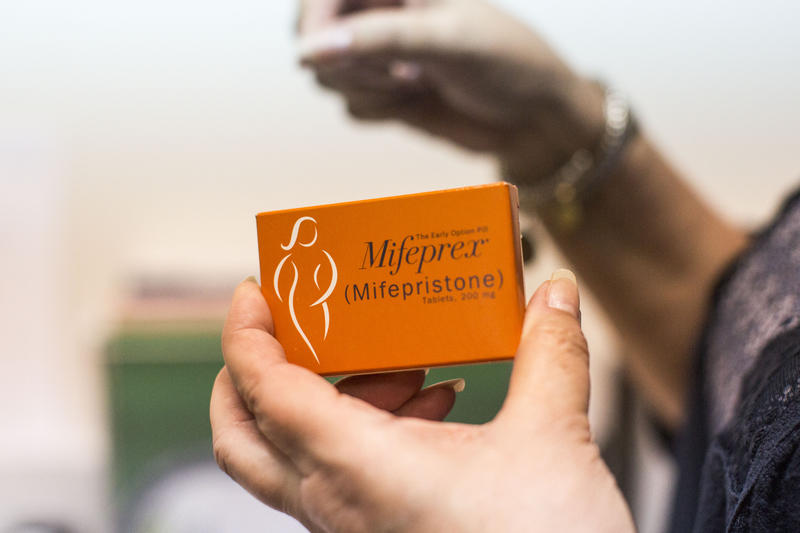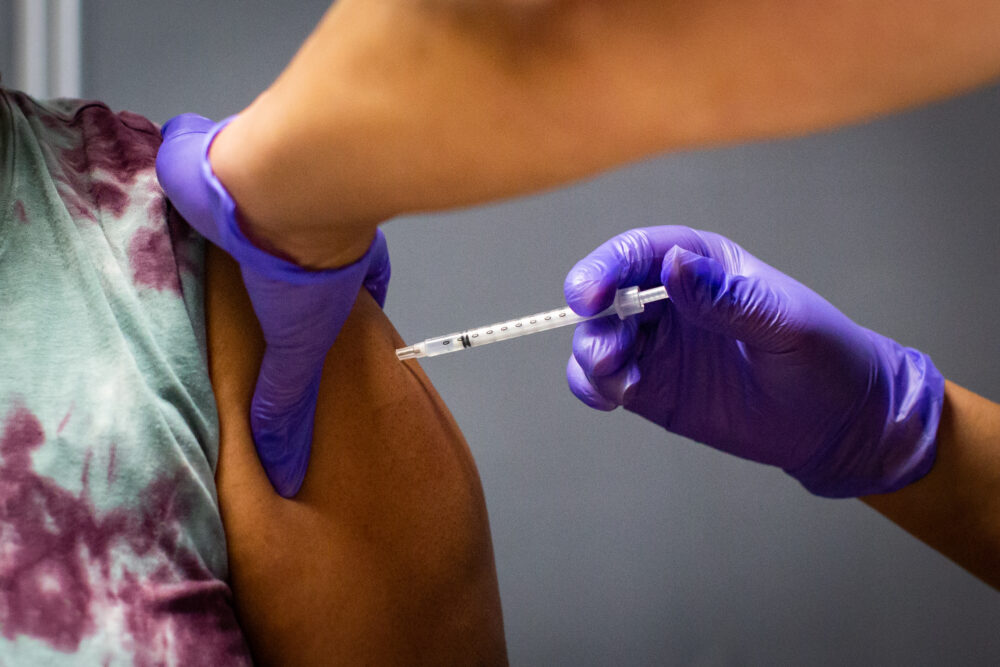Three states can proceed with another attempt to rescind federal regulations and make it more difficult for Americans to obtain the abortion medication mifepristone, according to a ruling issued Thursday by the Texas judge who previously blocked approval of the country’s most popular abortion technique.
After the U.S. Supreme Court narrowly ruled that the opponents of abortion who initially filed the lawsuit lacked the legal authority to sue, Idaho, Kansas, and Missouri asked late last year to take the case to federal court in Amarillo, Texas.
Matthew Kacsmaryk, a former President Donald Trump candidate who has recently ruled against the Biden administration on a number of subjects, including immigration and LGBTQ protections, is the only federal judge stationed in Amarillo.
The states want the federal Food and Drug Administration to limit the use of mifepristone to the first seven weeks of pregnancy, rather than the current 10-week limit, and to forbid telemedicine prescriptions for the medication. In order to obtain the medication, they also wish to demand three in-person trips to the doctor’s office rather than none at all.
The states contend that any attempts to make the drugs available “undermine state abortion laws and frustrate state law enforcement,” as stated in court records.
However, Kacsmaryk stated that simply because they are not in Texas, they shouldn’t be disqualified from filing a lawsuit there.
The U.S. Supreme Court unanimously upheld access to mifepristone last year, a narrow decision that found the opponents of abortion who initially brought the case lacked the legal right to sue. The American Civil Liberties Union said Thursday that the case should have been resolved.
Kacsmaryk’s ruling “has left the door open for extremist politicians to continue attacking medication abortion in his courtroom,” according to the American Civil Liberties Union.
Trump’s government will probably represent the FDA in the case because the decision was made just days before he starts his second term as president. Trump has emphasized on the campaign trail that he chose justices to the Supreme Court who voted in favor of overturning the national right to abortion in 2022, despite his frequent claims that abortion is a state matter and not a federal one.
Since then, opponents of abortion have focused more on abortion pills, mostly since the majority of abortions performed in the United States are performed with medications rather than surgery. Republicans have so far introduced legislation to outlaw drugs in at least four states: Indiana, Missouri, New Hampshire, and Tennessee. Louisiana, which designated the narcotics as prohibited hazardous substances last year, has a different strategy than the others.
In the past, Kacsmaryk supported a group of doctors and organizations opposed to abortion who wanted the FDA to be forced to completely revoke its 2000 approval of mifepristone.
The states, however, are aiming for a more focused goal. They aimed to reverse a number of FDA changes that have facilitated access rather than specifically targeting the approval.
However, voters in Missouri delivered a different message in November when they backed a ballot proposal to overturn one of the country’s tightest bans, despite the state authorities’ efforts to drastically restrict access to the pharmaceuticals. Abortion at any stage of pregnancy is prohibited in Idaho. Abortion is normally permitted in Kansas until the 22nd week of pregnancy.
In the United States, 13 states with Republican-controlled legislatures forbid abortions at all stages of pregnancy, with a few exceptions, and four more forbid them after the first six weeks, when women typically become aware that they are pregnant.
Some states with a Democratic majority have passed legislation aimed at protecting physicians who prescribe the tablets during telemedicine visits and mail them to patients in jurisdictions where they are prohibited from being investigated or prosecuted. According to a study, people in places where abortion is illegal are receiving abortions at roughly the same rate as they did prior to the restrictions, mostly because of those prescriptions.
More than three-fifths of all abortions performed in the United States since the Supreme Court’s decision overturning Roe v. Wade have been pharmaceutical abortions, which typically involve the use of mifepristone in conjunction with another medicine.
The medications differ from emergency contraceptives, such as Plan B, which are often given three days after a potential pregnancy, weeks before a woman is aware that she is pregnant. Although they are less effective than procedural abortions, studies have shown that they are generally safe and produce completed abortions more than 97% of the time.
Washington is where Whitehurst reported from. Contributing from Nashville, Tennessee, was Kimberlee Kruesi of the Associated Press.




